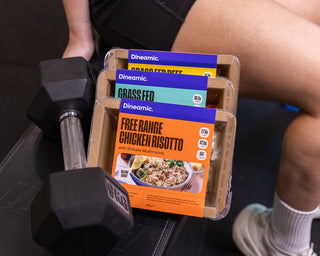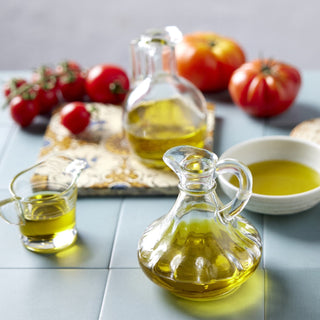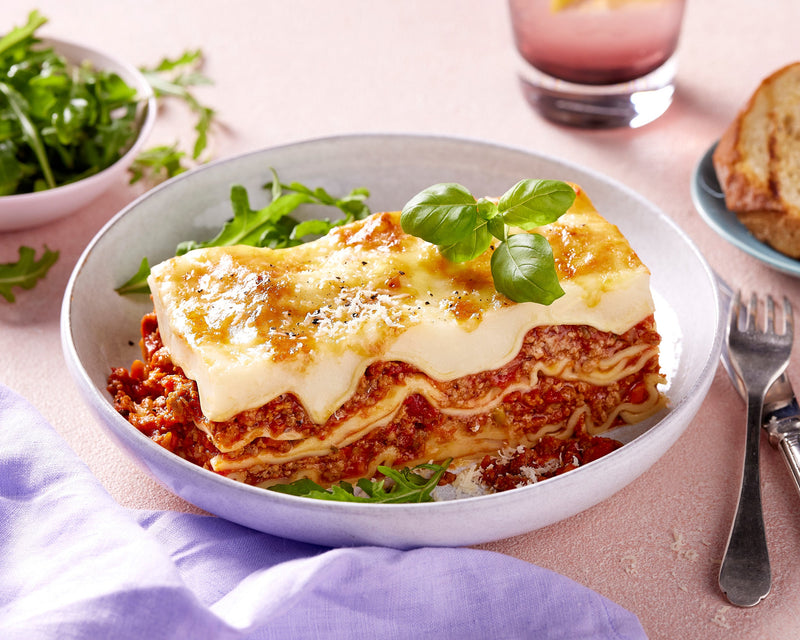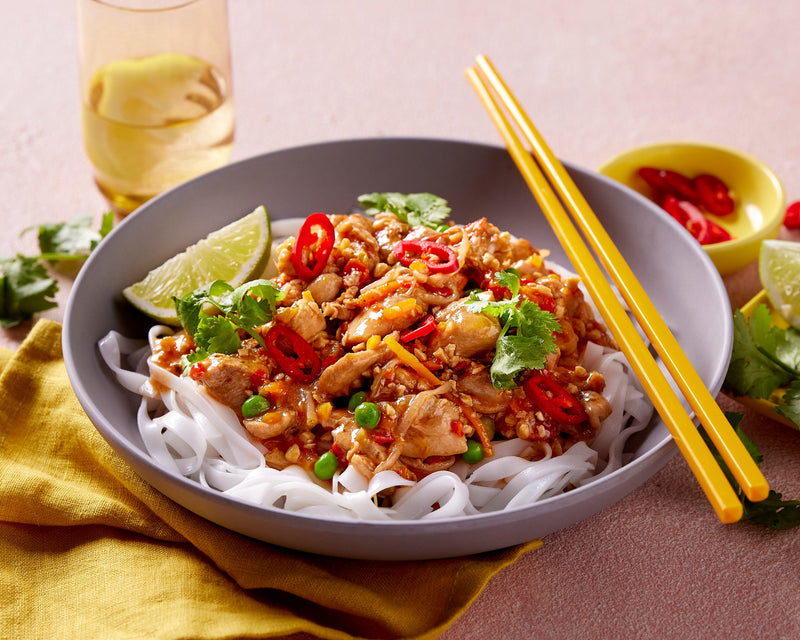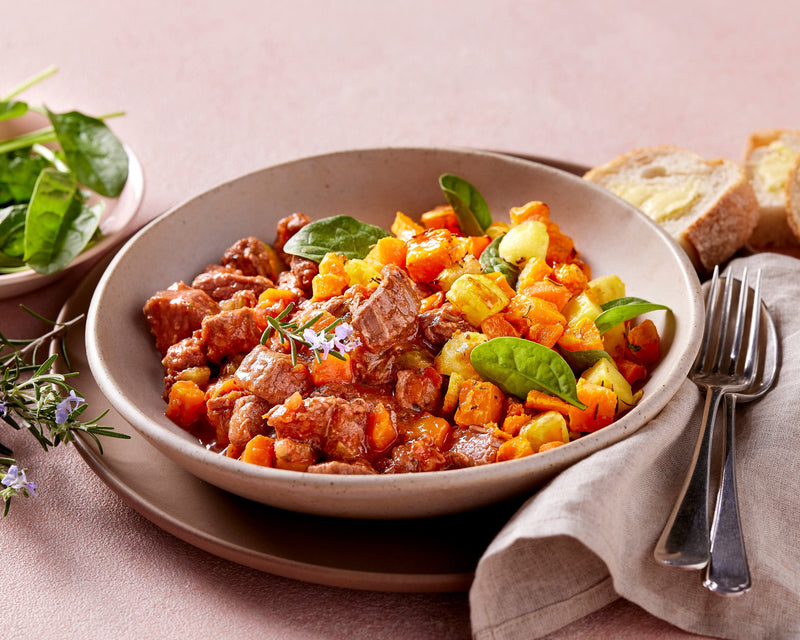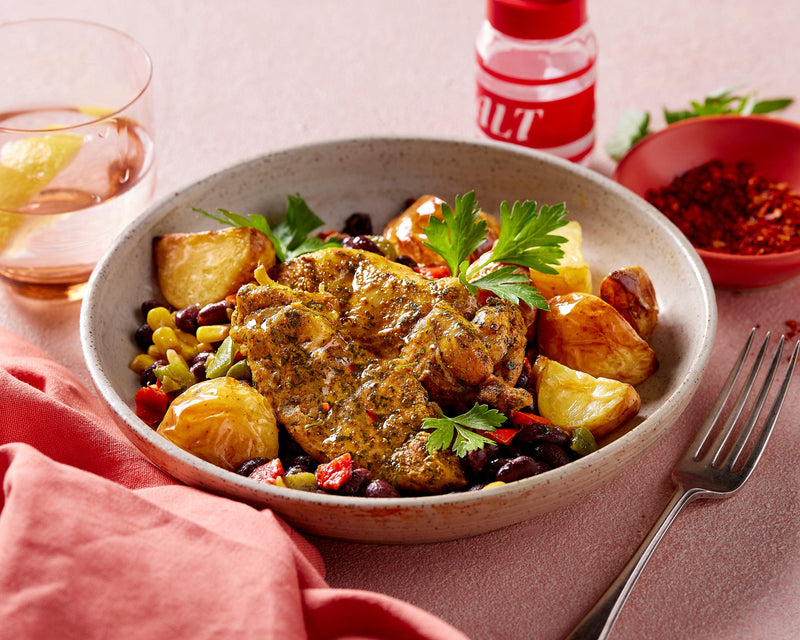Uncover the health benefits of Extra Virgin Olive Oil.
But First, What is Extra Virgin Olive Oil?
Extra virgin olive oil (EVOO) is a healthy, very well-known cooking ingredient and has deep cultural significance in many cuisines and cultures across the world such as the Mediterranean diet. What may be less commonly known are its remarkable health benefits – and our recommendation to include them in your diet. What makes EVOO “extra virgin” is the first cold pressing of olives, preserving their natural antioxidants components and distinctive flavour1.
From drizzling it over salads to adding it to your morning coffee or as a dipping sauce for artisan bread, the versatility of extra virgin olive oil is boundless. In this exploration, we will uncover the key health benefits of EVOO, disease prevalence in Australia and EVOO’s potential impact, how to add EVOO into your diet, recommended intake and how to choose the right brand off the shelf.
In the face of concerning health statistics, incorporating EVOO into your diet can be a simple and impactful step towards a healthier lifestyle.
Is Extra Virgin Olive Oil Good for Heart Health?
According to the most recent survey by the Australian Bureau of Statistics (ABS) between 2017-2018, approximately 1.2 million Australians experienced heart disease, stroke, and vascular disease2.
Numerous studies suggest that the consumption of this oil can contribute to cardiovascular health by reducing the risk of heart disease, stroke, and vascular diseases2,3. For example, according to a 2020 study published by the Journal of the American College of Cardiology, identified that participants who ingested as much as one tablespoon (13.5 g) of olive oil per day had a reduced risk of coronary heart disease by 18% over a long-term period3.
Compared to other plant-based oils, EVOO has the highest percentage of monounsaturated fat, which lowers the "bad" LDL cholesterol and increases "good" HDL cholesterol4. It has been shown to lower blood pressure and contain anti-inflammatory and antioxidant properties that are known to improve blood cholesterol levels and blood vessel function3,4.
Can Extra Virgin Olive Oil Help Manage Type 2 Diabetes Mellitus (T2DM)?
The ABS reported approximately 998,100 Australians experienced Type 2 Diabetes during 2017-2018, which highlights the increasing prevalence of this metabolic disorder2.
For those currently type 2 diabetic or pre-diabetic, introducing extra virgin olive oil into daily meals can offer many benefits. EVOO is low on the glycaemic index (GI) and helps regulate average blood sugar levels (HbA1c), promoting better glucose control5. A 2017 systematic review published in the National Library of Medicine, concluded that participants who ingested 1.0 - 1.5 tablespoons (15 g - 20 g) of EVOO per day saw a significantly decreased risk of T2DM5.
Additionally, the analysis data provides evidence that EVOO can be beneficial for the prevention and management of diabetes5. The review makes note on the significance of the Mediterranean diet, approximately two-thirds of vegetable fats are found in their cuisine including EVOO5. There have been many links between this diet and the reduced risk of T2DM5.
Can Eating Extra Virgin Olive Oil Help with Weight Loss?
Throughout 2017-2018, the ABS identified that 67% of Australian adults or 12.5 million people, were overweight or obese – an increase from 63.4% in the previous 2014-2015 survey2.
If you are amongst the majority of Australian adults struggling with weight, the polyphenols in extra virgin olive oil can assist in body weight reduction and weight management6.
You can think of polyphenols as small compounds packed with antioxidants protecting your body against free radicals – they are associated with enhanced metabolism, promotes satiety (the feeling of being full) and appetite control6.
A 2022 study found that the presence of EVOO in the diet optimised the circulation of cholesterol and triglycerides in the body, ultimately reducing LDL (bad cholesterol) oxidation, preventing inflammation in the arteries and an overall reduction in body fat6.
Can Extra Virgin Olive Oil Contribute to a Healthy Brain?
Alzheimer’s disease, the most common form of dementia has been estimated to affect between 40 million – 50 million individuals worldwide7. Although prevalence is quite high, there are many preventative factors that can protect the brain such as diet7. EVOO present in the diet has been associated with being a protective factor to help prevent and even halt the progression of Alzheimer’s disease7.
Additionally, in the 2013 PREDIMED-NAVARRA clinical trial on 522 individuals, the consumption of a Mediterranean diet supplemented with EVOO, and nuts resulted in improved cognitive function in their participants7.
It is important to note that individual responses to EVOO may vary, however, our team at Dineamic highly advocates incorporating EVOO into your diet. The compelling research, though not universally applicable, highlights the potential benefits that adding EVOO can offer to your overall mental health.
How Much Extra Virgin Olive Oil Can I Eat Per Day?
Extra Virgin Olive Oil is considered a healthy fat; however, it is quite high in calories. According to research, the average adult is recommended to consume around 2-3 tablespoons of EVOO per day to receive its health benefits8. For children the recommended intake is slightly less, around 1-2 tablespoons per day8.
If you are counting your calories, 1 tablespoon of EVOO is equivalent to 119 calories or 498 kJ.
|
Amount |
Calories |
Kilojoules (kJ) |
|
1 tablespoon |
119 |
498 |
|
2 tablespoons |
238 |
996 |
|
3 tablespoons |
357 |
1,494 |
How Do I Add Extra Virgin Olive Oil To My Meals?
EVOO is very a versatile ingredient which can be used on the pan or simply added to your dish straight from the bottle.
There is no single definition of the Mediterranean diet, it can be considered a way of eating based on the traditional cuisines of countries such as Spain, France, Monaco, Italy, Croatia, Bosnia, Greece, Turkey and many more.
The foundation of this diet is plant foods such as fruits, vegetables, herbs, nuts and whole grains and complimenting these foods with seafood, red meats and healthy fats9.
If you wish to follow this type of diet, use these tips to help you get started:
- Eat more fruits and vegetables: Aim to consume 2 servings of fruit and 4 servings of vegetables per day.
- Use healthy unsaturated fats from plants such as EVOO or Avocado Oils
- Consume Seafood: Aim to have 1 serving of oily fish (Salmon, tuna, mackerel, herring) or shellfish around 2-3 times a week. Avoiding deep fried dishes.
- Snacking on nuts: Aim to consume around a cup of nuts per day.
Additionally, our menu offers a Mediterranean inspired Beef Chilli Con Carne which is cooked with approximately 1 tablespoon of olive oil. To get in your daily requirement, you can simply drizzle 1 or 2 tablespoons on-top of this meal!
How To Choose the Right Brand of Extra Virgin Olive Oil.
Look for certifications such as the “Certified Australian EVOO trademark”. You can visit their website which lists all Australian Olive Oil brands that have been certified to help you choose the best on your next trip to the supermarket!
Website: https://australianextravirgin.com.au/brands/
If you want to choose a brand outside of Australia, check the country and time of bottling. EVOO bottled in Mediterranean countries such as Italy are higher in quality. The fresher the bottle the higher the polyphenol content.
Written by James Pun-McConnell
Frequently Asked EVOO related Questions:
How much EVOO should I eat per day?
For the average adult, it is recommended to consume 2 – 3 tablespoons of EVOO per day.
If you have any special dietary requirements, it is recommended to consult a nutritionist or dietician so they can provide guidance to your individual needs.
Can my kids have Extra virgin olive oil?
Yes! However, it is recommended to consume around 1 – 2 tablespoons of EVOO per day.
What temperature can I heat EVOO?
The smoke point of Extra Virgin Olive Oil is between 190–207 °C which is a safe choice for cooking methods such as pan frying.
How long can I keep EVOO on the shelf?
Once bottled it has a shelf life of 18-24 months. We recommend checking the bottling date to ensure it is between these times. After opening, EVOO is best consumed within 30-60 days.
References
- Grades of olive oil [Internet]. Olive Wellness Institute; 2023 [cited 2023 Nov 10]. Available from: https://olivewellnessinstitute.org/extra-virgin-olive-oil/grades-of-olive-oil/
- Australian Bureau Statistics National Health Survey: First Results, 2017-18 financial year [Internet]. [cited 2023 Nov 10]. Available from: https://www.abs.gov.au/statistics/health/health-conditions-and-risks/national-health-survey-first-results/latest-release
- Guasch-Ferré M, Liu G, Li Y, Sampson L, Manson JE, Salas-Salvadó J, et al. Olive oil consumption and cardiovascular risk in U.S. adults. Journal of the American College of Cardiology. 2020;75(15):1729–39. doi:10.1016/j.jacc.2020.02.036
- The benefits of adding a drizzle of olive oil to your diet [Internet]. 2023 [cited 2023 Nov 10]. Available from: https://www.heart.org/en/news/2022/09/28/the-benefits-of-adding-a-drizzle-of-olive-oil-to-your-diet
- Schwingshackl L, Lampousi A-M, Portillo MP, Romaguera D, Hoffmann G, Boeing H. Olive oil in the prevention and management of type 2 diabetes mellitus: A systematic review and meta-analysis of Cohort Studies and Intervention Trials. Nutrition & Diabetes. 2017;7(4). doi:10.1038/nutd.2017.12
- Seidita A, Soresi M, Giannitrapani L, Di Stefano V, Citarrella R, Mirarchi L, et al. The clinical impact of an extra virgin olive oil enriched Mediterranean diet on Metabolic Syndrome: Lights and shadows of a nutraceutical approach. Frontiers in Nutrition. 2022;9. doi:10.3389/fnut.2022.980429
- Millman JF, Okamoto S, Teruya T, Uema T, Ikematsu S, Shimabukuro M, et al. Extra-virgin olive oil and the gut-brain axis: Influence on gut microbiota, mucosal immunity, and cardiometabolic and cognitive health. Nutrition Reviews. 2021;79(12):1362–74. doi:10.1093/nutrit/nuaa148
- Gaforio et al. (2019) ‘Virgin olive oil and health: Summary of the III international conference on virgin olive oil and health consensus report, Jaen (Spain) 2018’, Nutrients, 11(9), p. 2039. doi:10.3390/nu11092039
- Mediterranean diet for heart health [Internet]. Mayo Foundation for Medical Education and Research; 2023 [cited 2023 Nov 10]. Available from: https://www.mayoclinic.org/healthy-lifestyle/nutrition-and-healthy-eating/in-depth/mediterranean-diet/art-20047801



